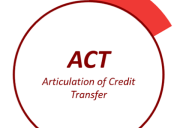You have /5 articles left.
Sign up for a free account or log in.
By the time Mark Wilson enrolled at Northwestern Michigan College in Traverse City, he’d had a lot of negative education experiences—including being singled out by teachers in elementary school because of his race. He didn’t have high hopes for his time in college.
But Wilson’s nation, the Grand Traverse Band of Ottawa and Chippewa Indians, offered a higher education stipend alongside the Michigan Indian Tuition Waiver—so he enrolled several months after earning his GED at the age of 19. He chose Northwestern Michigan College mostly because it was there and he could get in. “I wasn’t really thinking about what I would do with school, just that it was kind of a means to get by,” he says. “You either work some lame part-time job or treat school like a part-time job.”
As Wilson’s time there unfolded, he took required English and introductory psychology courses that helped him process some of the experiences he’d gone through as a child. And he enrolled in just about every visual communications course he could, but he didn’t consider it as a career option—it just interested him. Then he learned that students in his classes were already getting paid for the kinds of graphic design and film-editing projects he was doing for fun. “I hadn’t even grasped that that’s why you would even take that course in the first place,” he says.
Wilson’s experience is common for adult students: many aren’t choosing among colleges—they’re going wherever is closest, even if they end up studying online. But they find themselves faced with a dizzying array of programs and courses but not a lot of personally relevant information about the purpose and value of a degree.
That’s why, for busy adults, information about the local and regional career outcomes for college graduates, broken down by program, is far more important than general career outcomes data.
That’s just one finding that came through loud and clear in our new research, published in “Turning the Mirror: Data Adult Learners of Color Want to See.” Our team at Sova conducted the qualitative study to test the relevance of 10 commonly reported data types. (More on the study design below.)
Five commonly reported categories of data that focus were viewed as irrelevant by focus group participants:
- Retention rate
- Persistence rate
- Loan default rate
- Average loan debt
- Percent of students who take out loans
The other five were viewed as somewhat relevant, but they would mean more to respondents if they were broken down to look specifically at outcomes for students like them—adult learners, working students, parent students, students of color. Those five were:
- Average earnings of graduates
- Job placement for graduates
- Percentage of students who receive scholarships
- Percentage of students who get internships
- Graduation rates
And when asked an open-ended question, adult learners of color said they’d like to see more data on what colleges are doing to create an environment of success for people like them. They want to know more about student and college employee demographics, outcomes and ROI for specific programs in their local labor market (as noted above), relevant supports and easily accessed resources for busy working parents, the average percentage of transfer credits applied toward a credential, and adviser-to-student ratios. Respondents in the study also said they were interested in information about co-curricular and professional network–building opportunities for adults, such as the number of employer partnerships per program and local networking opportunities available through the college or workforce training program.
The goal of the research was to hear directly from adult students of color to help ensure that current and future data tools feel relevant and useful to them. Our team conducted the research through a series of 23 focus groups in multiple regions of the country with adults between the ages of 25 and 55 who identify as Black, Latino/a/x and Native American. The work was supported by Lumina Foundation, and nonpartisan research and public engagement organization Public Agenda partnered with Sova to provide independent coding and analysis of transcripts.
Wilson, who eventually earned his associate, bachelor’s and master’s degrees and is now the owner of New Leonard Media, served as a cultural liaison and documentarian for the focus groups with Native American adults in northwest Michigan whose experiences he could directly relate to. You can find more of Mark’s story here. Additionally, mission-driven media consultancy Ambassador Stories provided technical support for the focus groups conducted with Black and Latinx adults in Washington State and California.
On the whole, the findings show that adult learners of color want better data to inform their decisions, but that doesn’t mean more of what we’re currently giving them. Higher education needs to do a much better job of understanding the experiences and expectations of adult learners of color, providing data that matter to them and doing it in ways that elevate the stories of their peers and promote trust. If colleges and universities focus on sharing information that matters to these learners in ways that resonate with and honor their experiences, these adults are more likely to view college as worth their time and money.
Without that, government agencies, nonprofits and colleges are putting a lot of time and effort into collecting and sharing data that aren’t going to get used by the people who most need education to lead to social and economic advancement. Data can empower people to make better education decisions—but only if it’s information they actually want.






